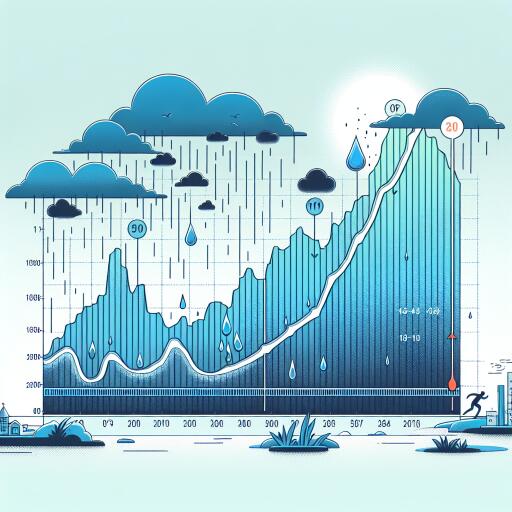
Heat Records Streak Ends Amid Natural Climate Shifts
The climatic rollercoaster our planet has been on for over a year, marking relentless monthly average heat records, has finally slowed its pace. The European climate agency Copernicus recently revealed that this extraordinary streak ended in July, as the world experienced a slight reprieve from the escalating temperatures thanks, in part, to the waning El Niño phenomenon.
Despite July’s temperatures not setting a new record, they were alarmingly close to those of July 2023, indicating that the shadow of climate change looms as large as ever. “Our climate continues to warm,” noted Samantha Burgess, deputy director of Copernicus, underscoring the persistent threat climate change poses.
Recent weeks have delivered a harsh reminder of the havoc that human-induced climate change can wreak. From Cape Town to Tokyo, communities have been battered by an array of climate-related catastrophes, including devastating landslides, hurricanes, and deadly heatwaves, spotlighting the urgent need for climate action.
Last month’s global average temperature hovered at 62.4 degrees Fahrenheit (16.9 degrees Celsius), marginally cooler than the same period last year yet still a concerning 1.2 degrees above the 30-year average. This positioned July as the second-warmest the world has seen, trailing only behind its predecessor, July 2023. Heroically high temperatures marked the Earth’s climate history, with the planet experiencing its hottest days on record mid-July.
The warming trend is tracking dangerously close to the limits set by the global community. July’s temperatures were notably warmer than preindustrial times by 2.7 degrees Fahrenheit (1.5 degrees Celsius), flirting with the critical threshold outlined in the Paris climate agreement. While El Niño contributed to the heat records, its cessation served as a temporary balm, doing little to alter the ongoing warming trend primarily fueled by the accumulation of greenhouse gases from fossil fuel consumption.
Regions such as western Canada and the United States felt the brunt of July’s scorching heat, highlighting the increasing importance of adapting our infrastructures and policies to better cope with summer conditions. In response to the escalating challenge, the U.S. is revising its focus on federal aid to not only address heating in the winter but also cooling during the summer months.
With record heat-related fatalities, including a tragic tally in Maricopa County, Arizona, last year, officials are ringing alarm bells over the public health crisis emerging from our warming world. Europe, too, has been in the grip of severe heatwaves, prompting emergency measures and warnings across southern regions and the Mediterranean.
Experts caution against complacency, warning that the end of this particular heat record streak does not signify a cooling trend. The relentless drive of climate change continues to bear down on the planet, with serious implications for our collective future.
“Things are going to continue to get worse because we haven’t stopped doing the thing that’s making them worse,” explained Gavin Schmidt, a leading climatologist. The recent cooling is but a brief respite in the long-term trend of global heating, signaling a challenging road ahead as we strive to mitigate the impact of climate change and safeguard our planet for future generations.
As the evidence mounts, the call to action becomes ever more urgent. The world has witnessed the consequences of climate change firsthand, and though the streak of heat records may have ended, the fight against global warming is far from over.





Leave a Reply